Search Separators
What to Expect When You Service with Separators
Here at Separators, service is our core offering. Over the years, we’ve put a lot of time, attention, and resources into ensuring the completeness of our centrifuge service capabilities. We’ve also been thinking about how we can present our services in ways that are clear to any prospective customers who might be considering working with us. In this VLOG, I provide a quick, easy outline of our service offerings. Check it out:
4 "Upstream" Equipment Issues (That Aren't Your Centrifuge)
Issues in your production line can lead to expensive downtime (and cause major long-term problems). While stopping an issue before it happens is the best way to protect your investments, troubleshooting your operations isn’t always easy.
Ensure Your Centrifuge Equipment is Operating at Peak Efficiency
If your centrifuge separator isn’t running at peak efficiency, you’re leaving dollars on the table. Simple as that. Depending on the product you’re running and the overall setup of your process, the variables that can cause your separator to under perform are countless.
Bowl Balancing: A Closer Look
Having a balanced bowl is vital to ensuring that your bowl lives a long, safe, and productive life. Just like you balance the tires on your car, your bowl should be balanced on a regular basis. An unbalanced centrifuge will not operate at peak efficiency and could even be dangerous. To keep your operators safe and your product quality high, centrifuges should be serviced to restore balance.
What Leading Centrifuge Brands Does Separators Service?
Does brand matter?
When it comes to making any large purchase, the answer is a resounding yes.
You invest time, energy, and research into creating a top-quality product. So it’s only natural you’d want to invest in equipment with a reputation for quality, consistency, and longevity. But where should you start?
4 Signs Your Centrifuge Could Use a Health Check
Centrifuge equipment failure is an abrupt and hazardous event that can halt your operations at a moment’s notice. While this equipment failure may seem sudden, there are a few telltale signs that something in your centrifuge is not working the way it should.
Centrifuge Service: Your Guide to Maximizing Longevity
Your centrifuge isn't just another piece of equipment — it's the linchpin of your facility's operations. When separation equipment falters, it sends shockwaves through your entire production process. A breakdown, whether minor or catastrophic, doesn't just affect one area—it paralyzes your whole operation.
Smart facility managers know that preventive maintenance isn't an expense, but rather an investment in your operation's reliability and financial health. Here’s how we can help you make the most of that investment to get — and keep — your centrifuge up and running without substantial downtime or unnecessary steps.
How to Clean a High-Speed Vertical Centrifuge
A dirty centrifuge can cause a host of severe problems, ranging from product contamination to costly equipment damage.
Cost of Maintenances vs. Cost of Downtime
Any problems with your centrifuge, no matter how minor, can halt your operations at a moment’s notice. And every minute your equipment isn’t working, you're losing time and money. Centrifuges do their job extraordinarily well, but only if you take the proper care to keep them running smoothly.
Check Out Our Indianapolis Shop Service Tour [Video]
While we may be best known for field service, where technicians travel to customer facilities and provide on-site service, that’s only part of our service capabilities. At our Indianapolis shop, centrifuge equipment comes to us. We take on the big, the bad, and the ugly. Watch the video to meet a few members of our team and get a tour of our shop.
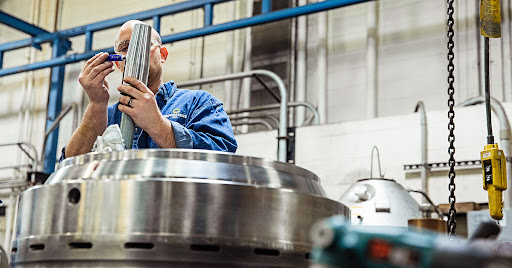
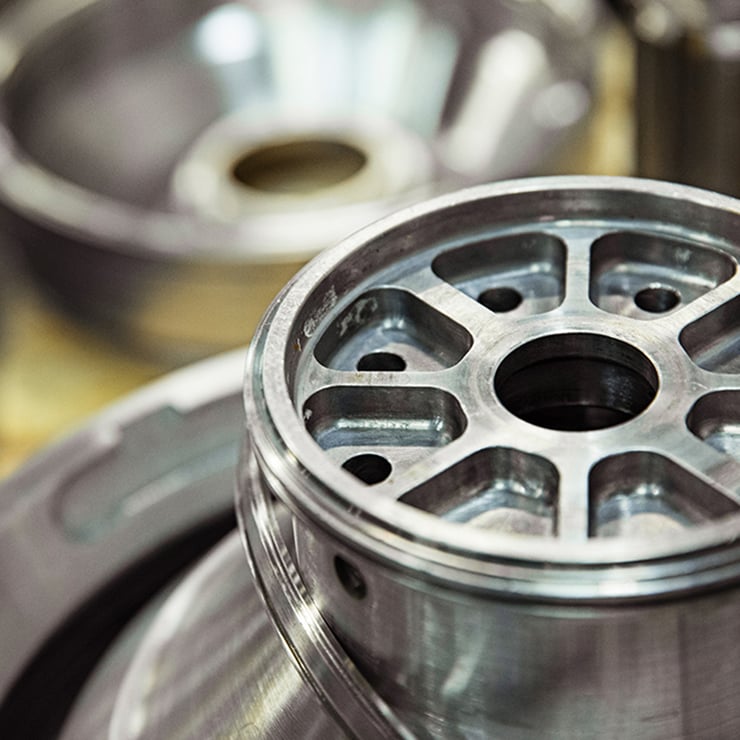

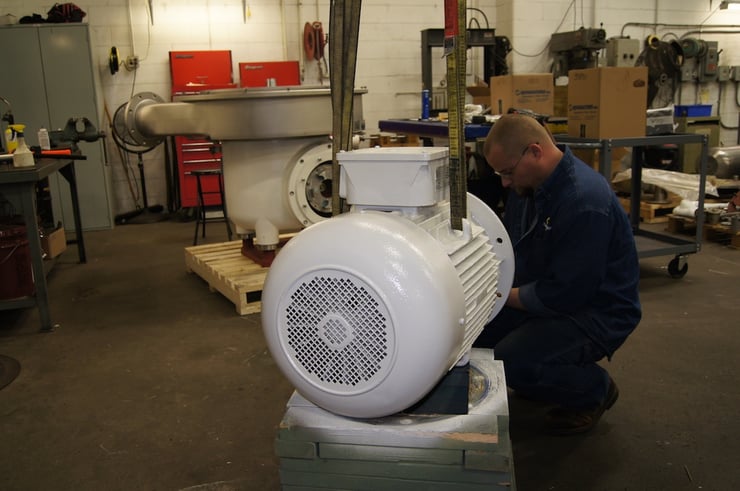
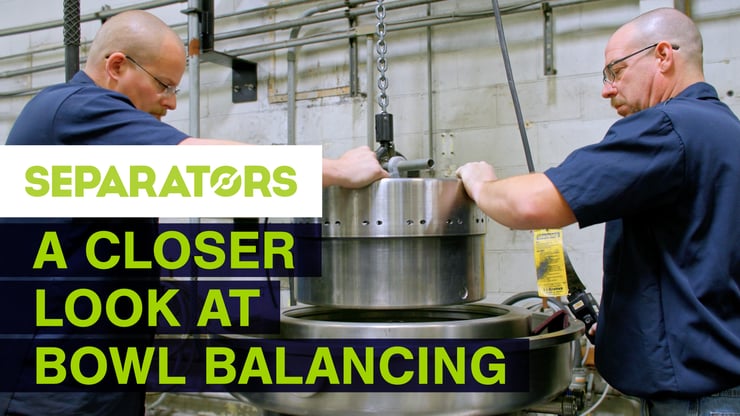
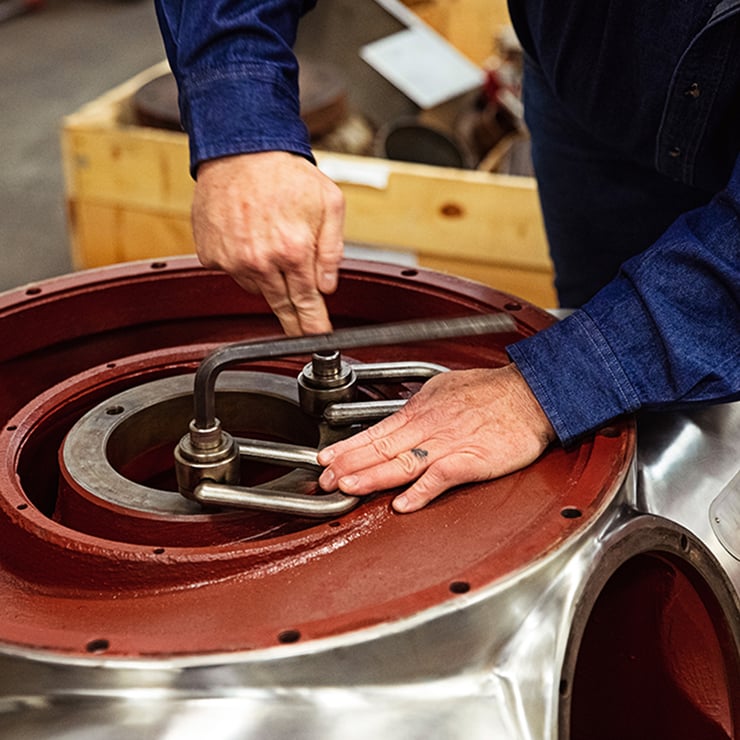
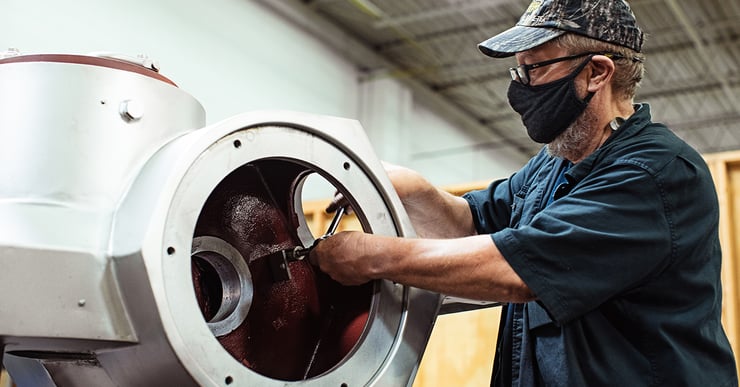
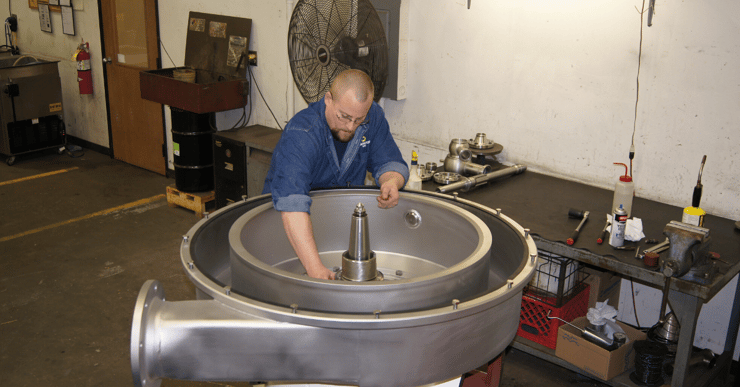
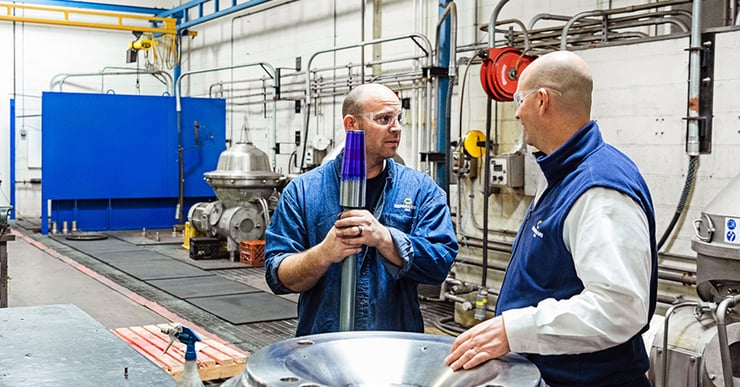
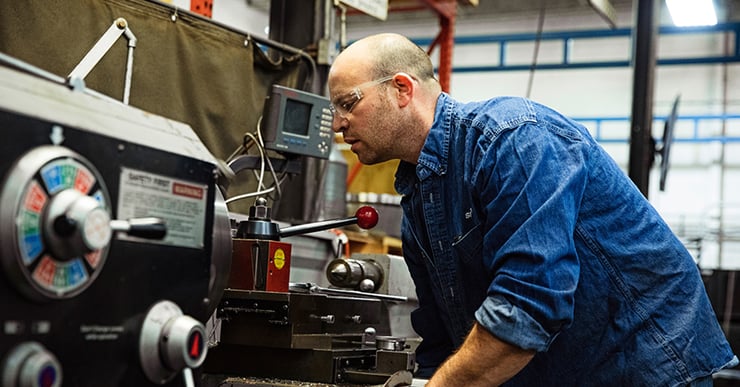
![Check Out Our Indianapolis Shop Service Tour [Video]](https://www.separatorsinc.com/hs-fs/hubfs/Blog/Sep-Shop-Tour-Thumbnail.jpg?width=740&name=Sep-Shop-Tour-Thumbnail.jpg)